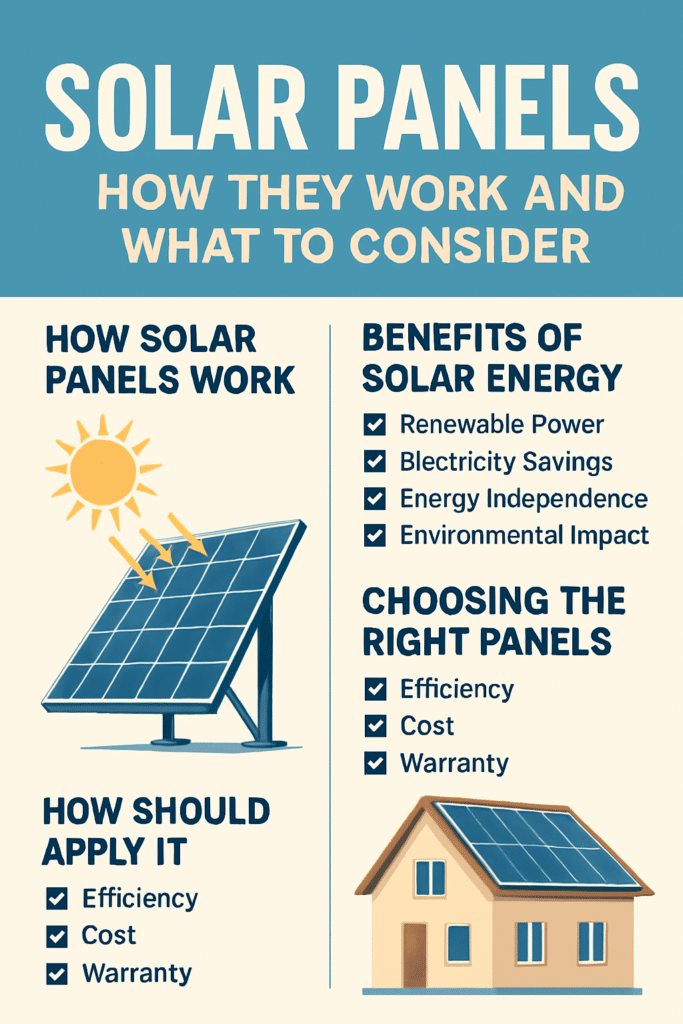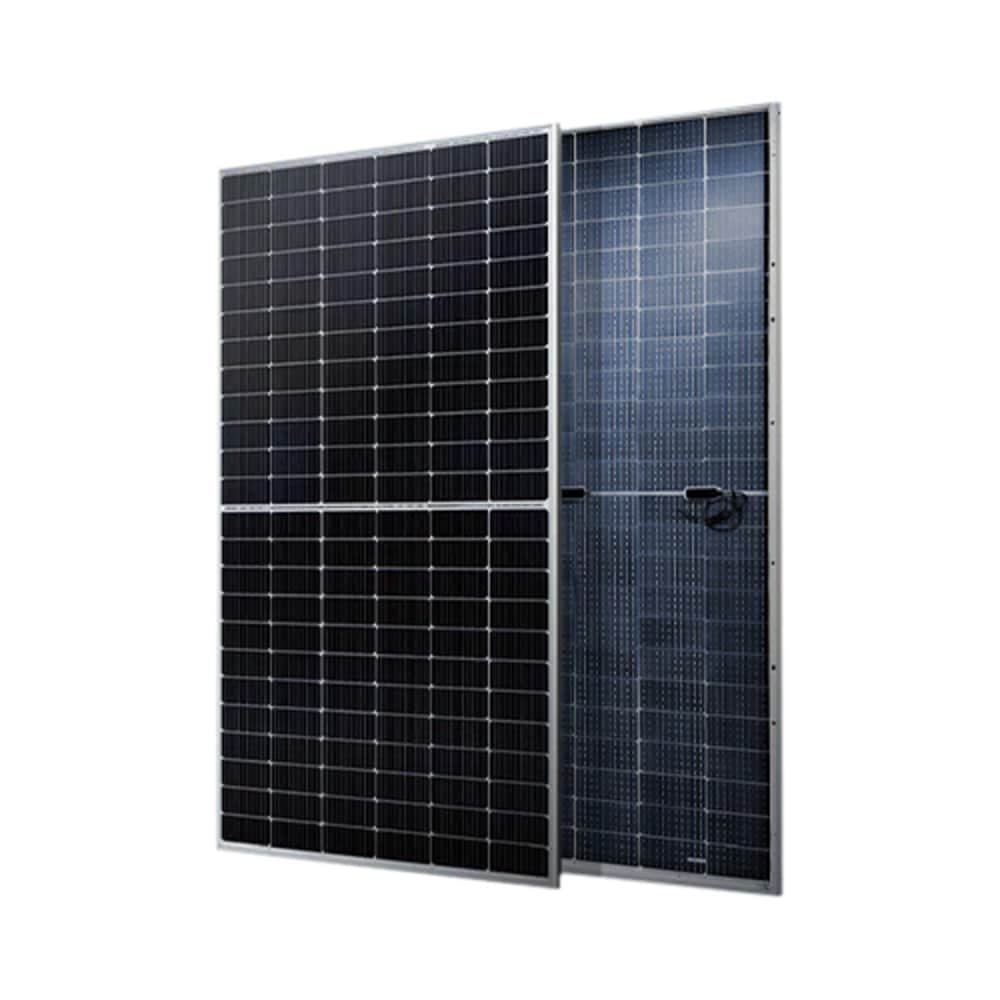📦 Fast Delivery – Order Now!
💸 Shop Safely – 100% Money-Back Guarantee
👨🔧 Lifetime Customer Support
Solar panels have become a crucial part of the renewable energy revolution. They offer homeowners and businesses a way to generate clean energy, reduce electricity bills, and contribute to a more sustainable future. Whether you’re considering installing a solar system or just curious about how it works, this guide will cover everything you need to know.
Solar panels use photovoltaic (PV) cells to convert sunlight into electricity. Here’s a simple breakdown of the process:

When selecting solar modules, consider these key factors:

✅ High output (550W) for superior efficiency
✅ Bifacial design for enhanced energy production
✅ Made in America, ensuring high quality and innovation
If you own a home or business with good sun exposure, solar panels can be a great investment. Consider your energy needs, available incentives, and long-term goals when making a decision.

Looking to switch to solar? Check out our range of high-quality solar modules and kits to start saving today! Need help choosing the right setup? Contact us for expert advice.
AceFlex LLC is your trusted online store for solar solutions, offering top-tier products with fast shipping across the USA. No warehouse—just seamless dropshipping for the best prices.

The number of solar panels needed depends on the size of your home, energy usage, and the efficiency of the panels. On average, a typical home requires about 20 to 25 solar panels to cover 100% of its energy needs.
Yes, solar panels are still worth it. With falling installation costs, improved efficiency, and incentives like tax credits, they can provide long-term savings on energy bills. Plus, they help reduce your carbon footprint.
A 3000-watt solar panel system can power small to medium-sized appliances, lighting, and electronics. It can typically supply enough energy for a home’s basic needs, such as lights, fans, and small appliances, but might not power high-energy-demand appliances like air conditioners or large electric heaters.
Yes, Massachusetts is one of the best states for solar. The state offers excellent incentives, including tax credits and net metering, and has a high rate of solar adoption. The abundant sunlight, combined with financial incentives, makes solar a great investment.
To power an air conditioner with solar panels, you would need a system that generates around 3000 to 5000 watts, depending on the efficiency and size of your AC unit. This can require anywhere from 10 to 20 panels, depending on the energy consumption of the unit.
Solar panels typically last 25 to 30 years. After this period, they continue to produce electricity, but at a reduced efficiency of around 80% of their original output.
The biggest drawback of solar panels is their initial cost, which can be high, even though the price has decreased over time. Additionally, solar panels depend on sunlight, meaning their efficiency drops on cloudy days or at night, requiring backup storage solutions like batteries.
The cost of solar panels per month varies depending on the size of the system and your energy usage. On average, monthly payments for solar installations (if financed) range from $50 to $150, depending on the system’s size, but the savings on electricity bills can offset this cost.
Yes, solar panels are tax-deductible through the federal Residential Clean Energy Credit, which allows you to claim 30% of the installation cost. Additionally, some states and local utilities offer additional incentives or rebates.
Yes, solar panels do work in winter. While they may generate less energy in cold or cloudy conditions, they still produce electricity, especially on sunny winter days. In fact, cold weather can improve the efficiency of solar panels since they perform better at lower temperatures.
A 1000W solar panel can power small devices and appliances such as lights, fans, and laptops. It may also charge batteries or run low-energy equipment, but it’s unlikely to power larger appliances like refrigerators or air conditioners on its own.
Leasing solar panels can be worth it for homeowners who cannot afford the upfront cost of installation or do not want to own the system. However, leasing typically results in less financial benefit over time compared to buying, as you won’t own the system or be able to take full advantage of tax incentives.
The number of batteries needed for a 3000-watt solar system depends on your energy storage needs. For example, if you want to store 10 kWh of energy, you would likely need 2-4 batteries, depending on the battery capacity. You should also consider the depth of discharge and efficiency of the battery to determine the exact number.
AceFlex is one of the leading online retailers of renewable energy products and offers a wide range of solar products. We work with well-known manufacturers and wholesalers and can offer you cost-effective products in the field of photovoltaics so that you too can contribute to the energy transition.
Looking for an experienced team for planning your photovoltaic system without the hassle of doing it yourself? We are your trusted partner, offering comprehensive nationwide solutions. We provide expert consultation and supply of both photovoltaic systems and storage units tailored to your specific needs.
© 2025 Aceflex All Rights Reserved. Design by Media Pantheon, Inc.





